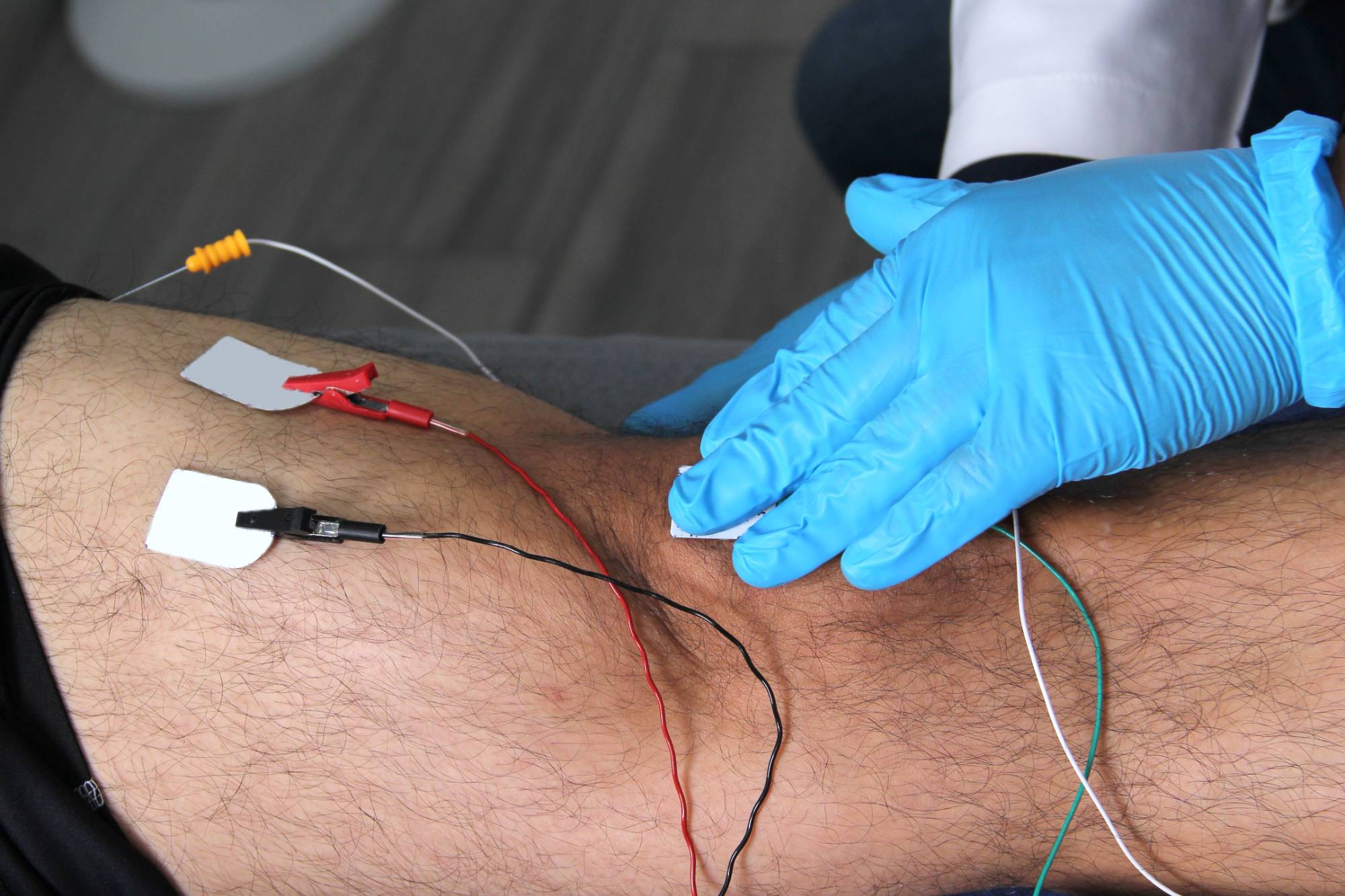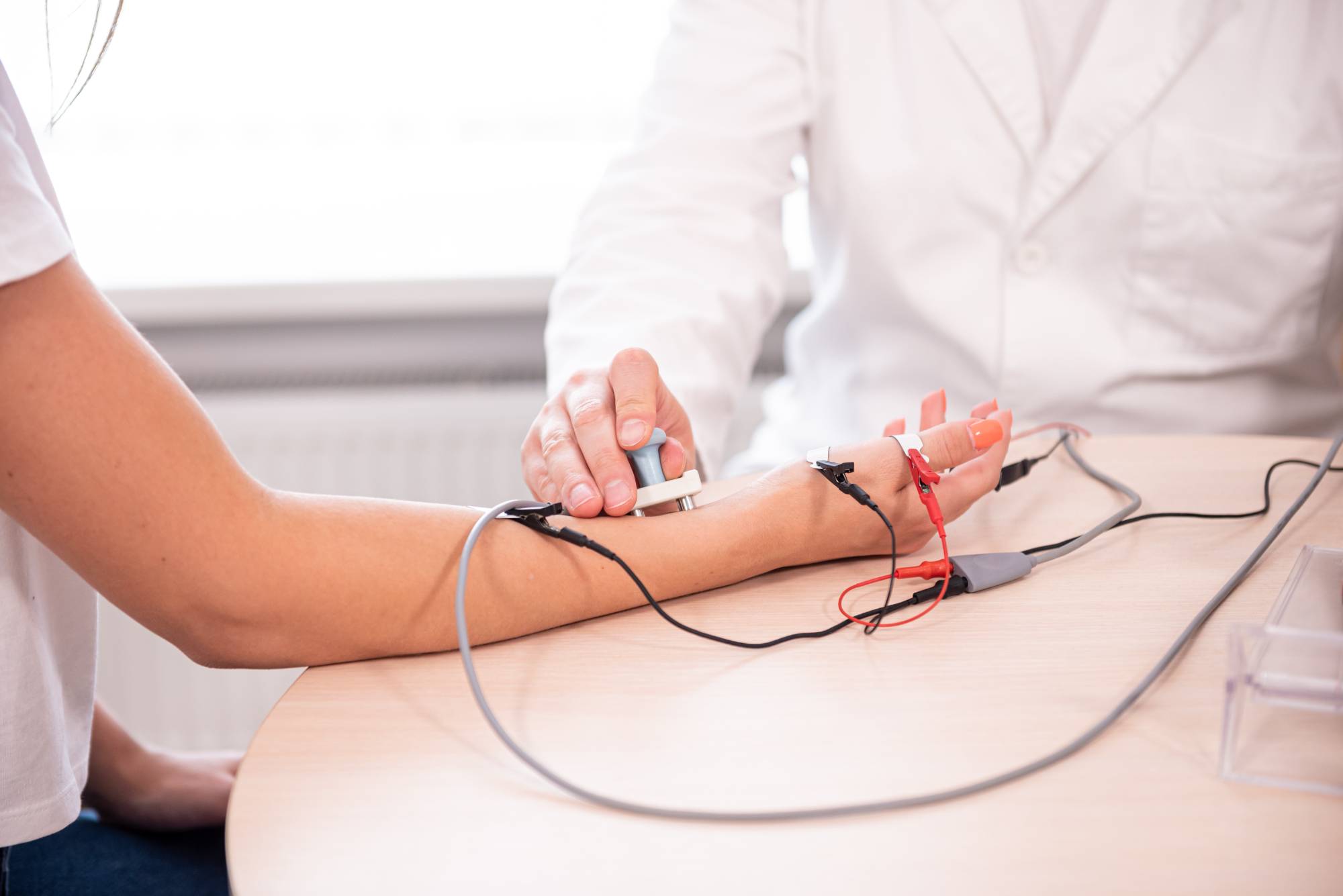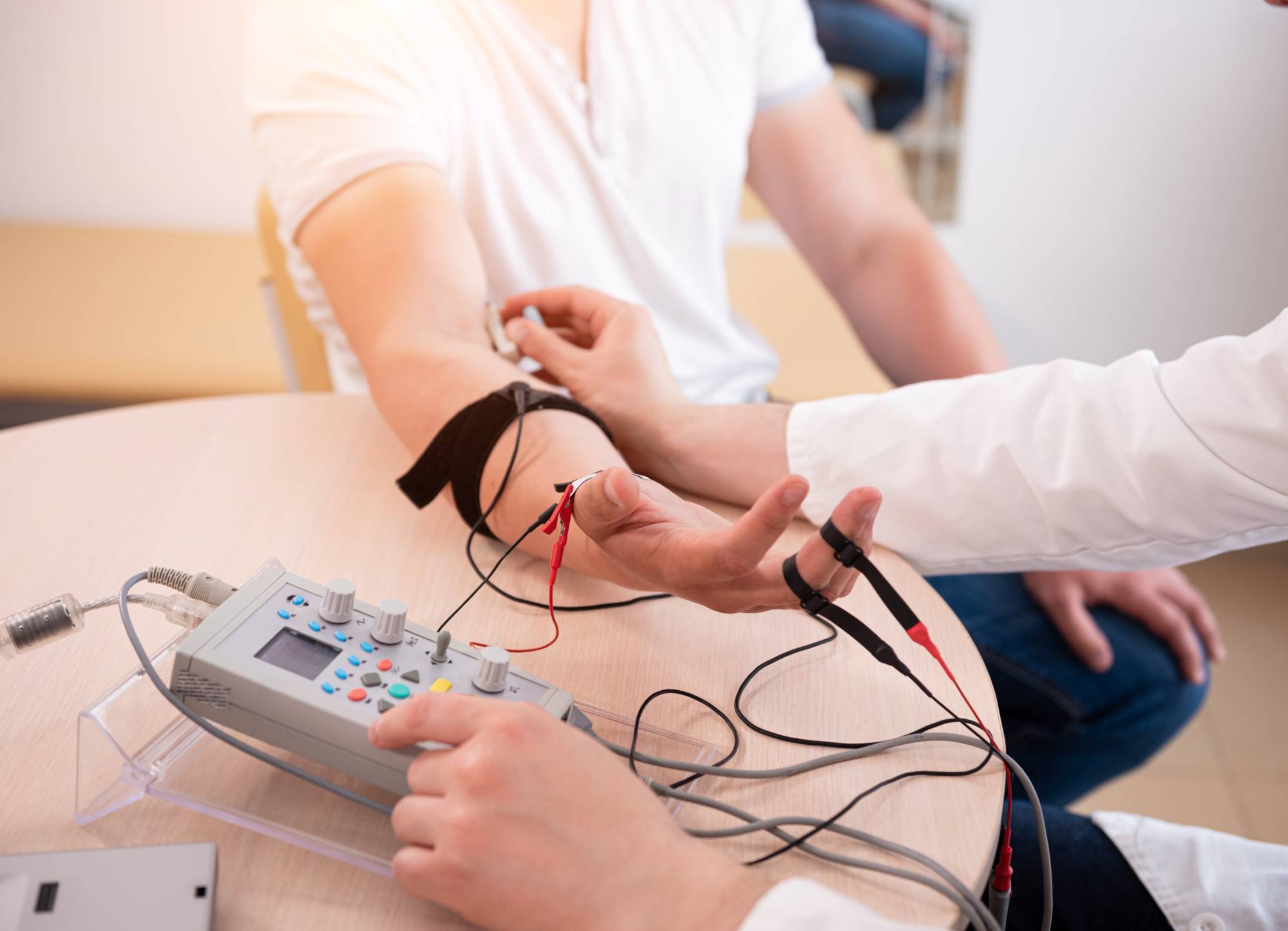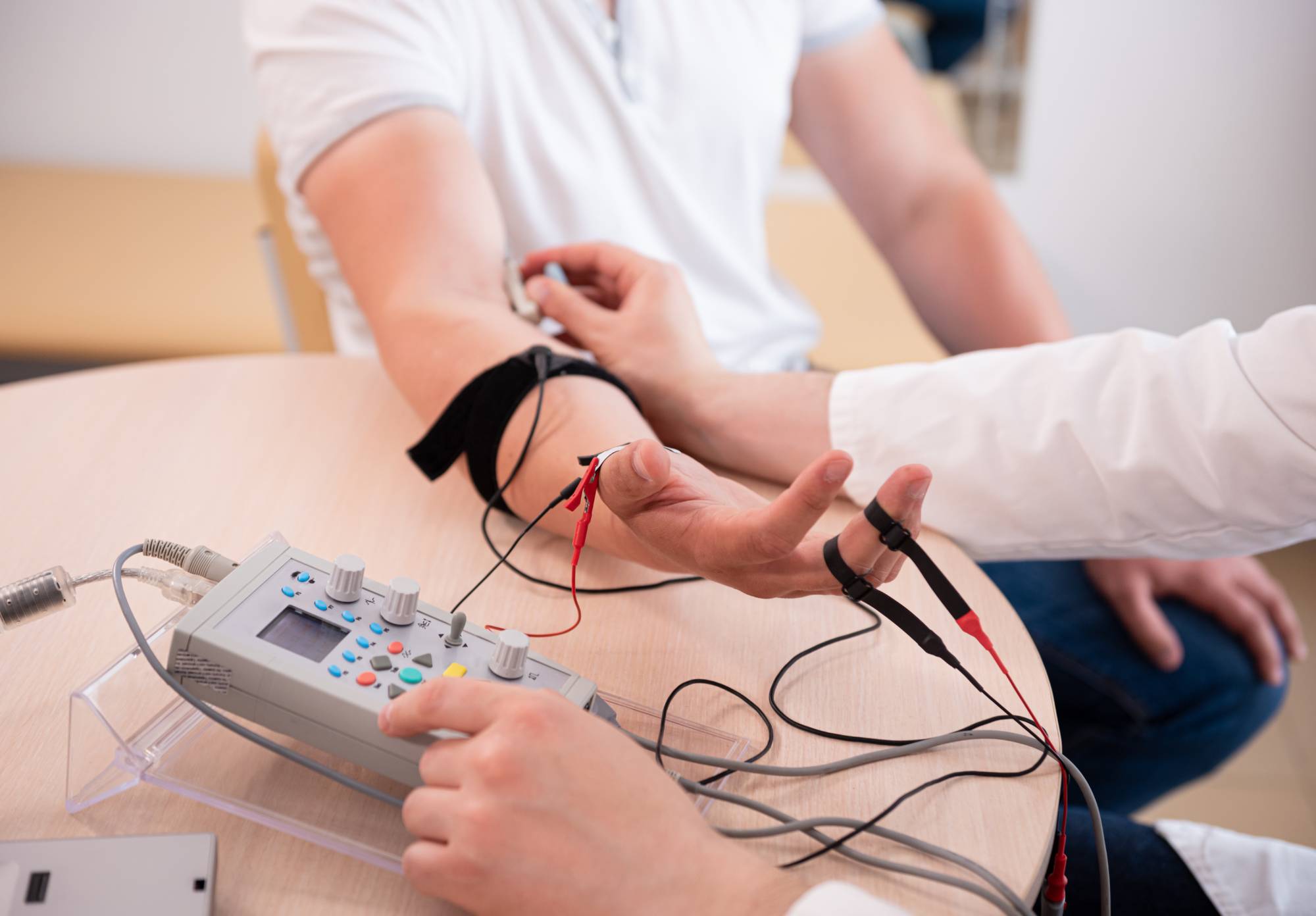Advanced electromyography testing that pinpoints exactly what’s causing your muscle weakness, numbness, or tingling.

Reviews

You’ve been dealing with unexplained symptoms long enough. That numbness in your hands, the muscle weakness that’s getting worse, or the shooting pain down your leg – these aren’t things you should have to live with or wonder about.
EMG testing gives you concrete answers. Within one appointment, you’ll know if you’re dealing with carpal tunnel syndrome, peripheral neuropathy, a pinched nerve, or something else entirely. No more guessing games or “wait and see” approaches.
The relief that comes with a clear diagnosis changes everything. You can finally move forward with the right treatment plan instead of trying random solutions that may or may not work for your specific condition.
NY Spine Medicine has been providing comprehensive neurological diagnostic services throughout Florida for years. Our team includes board-certified specialists who interpret hundreds of EMG and nerve conduction studies monthly.
What sets our practice apart is the combination of advanced diagnostic equipment with physicians who actually take time to explain your results. You’re not just getting a test – you’re getting answers from doctors who understand exactly what your symptoms mean.
Our Orchard Villa location serves patients throughout central Florida who need reliable, professional EMG testing without the long wait times typical at larger hospital systems.

The EMG test has two parts, and the whole process typically takes 45-60 minutes. First comes the nerve conduction study, where small electrodes are placed on your skin to measure how well electrical signals travel through your nerves. You’ll feel brief, mild electrical pulses – most patients describe it as similar to static electricity.
Next is the needle EMG portion, where a thin needle electrode is inserted into specific muscles to measure their electrical activity. The needle is much thinner than those used for blood draws, and while you’ll feel it, most patients tolerate this part well.
Throughout the test, our technician explains what’s happening and why. After completion, a board-certified physician reviews all data and discusses findings with you the same day. You’ll leave with a clear understanding of what the test revealed and what your next steps should be.

Ready to get started?
Your EMG testing includes both electromyography and nerve conduction velocity studies in one comprehensive appointment. The testing evaluates multiple nerve pathways and muscle groups to give a complete picture of your neurological function.
Each test is performed using state-of-the-art equipment that provides precise measurements and clear data interpretation. The board-certified physicians at NY Spine Medicine have extensive experience diagnosing conditions like carpal tunnel syndrome, ulnar neuropathy, radiculopathy, peripheral neuropathy, and various muscle disorders.
You’ll receive detailed results the same day, along with specific recommendations for treatment or additional testing if needed. We also coordinate directly with your referring physician to ensure continuity of care and prompt treatment planning.

New York:
Florida:
Support